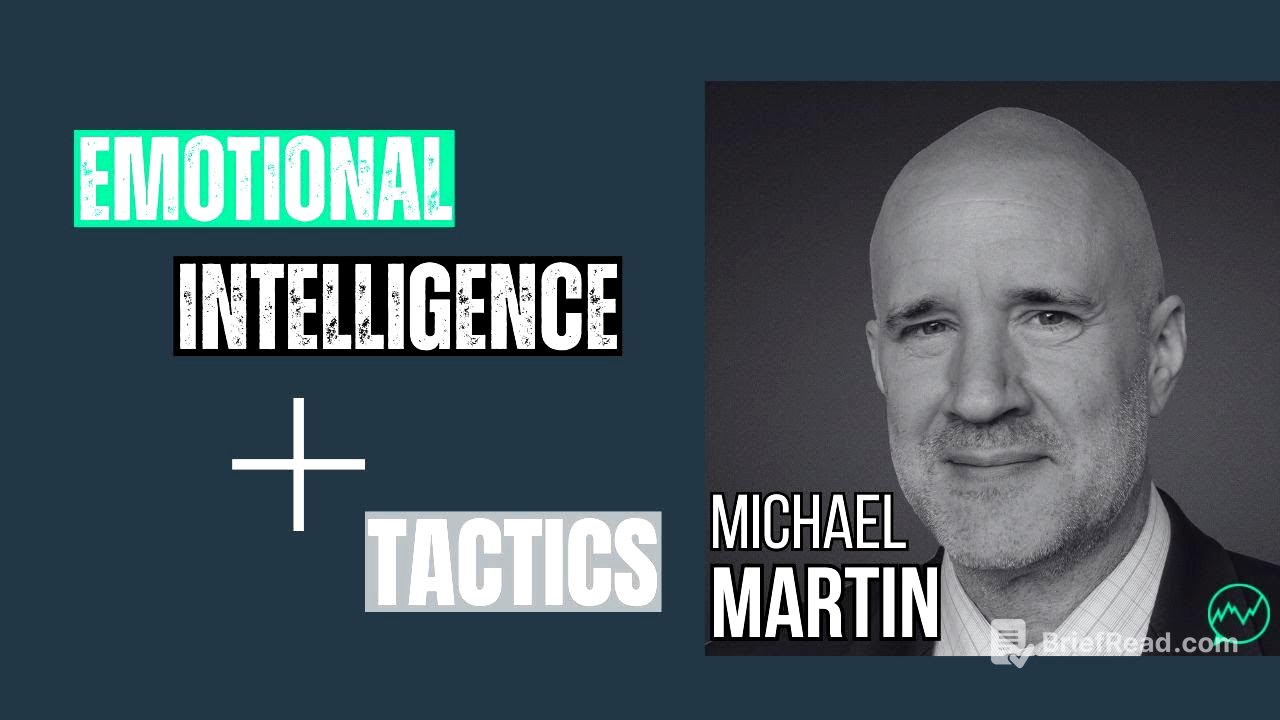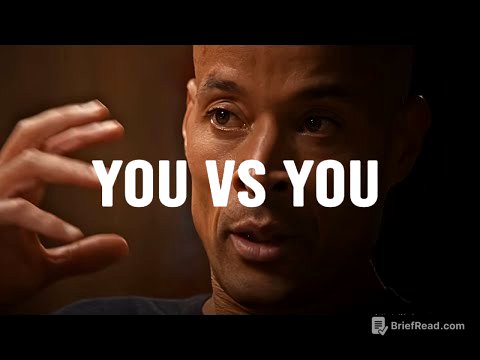TLDR;
This episode of Chat with Traders features an interview with Michael Martin, a professional futures trader with over 30 years of experience. He shares his journey from a working-class background to becoming a successful trader, discussing the importance of risk management, mental discipline, and continuous self-improvement. Key takeaways include the need to adapt to changing market conditions, the limitations of technical indicators, and the significance of personal responsibility in trading.
- Importance of risk management and mental discipline in trading.
- Adaptability to changing market conditions and continuous self-improvement.
- Limitations of relying solely on technical indicators.
- Significance of personal responsibility and decisive action in trading.
Introduction [0:01]
The Chat with Traders podcast is introduced, highlighting the upcoming interview with Michael Martin, a seasoned futures trader known for his New York accent and insightful perspectives. Tessa, the co-host, mentions that Michael has referred several past guests to the show and teases the bonus behind-the-scenes segment where she puts Michael "on the witness stand" with additional questions. Listeners are also offered a free audio version of Michael's book, "The Inner Voice of Trading," available via a link in the show notes on the Chat With Traders website.
Early Life and Introduction to Trading [6:34]
Michael Martin discusses his upbringing in New York and his initial exposure to the financial markets through friends who became locals on the exchanges. He describes his early work experience in a work-study program where he helped design a hedging strategy for his university using seasonal tendencies in energy markets. This role involved analysing data using Lotus 123 spreadsheets to identify seasonal price tendencies in natural gas and heating oil, helping the university manage energy costs for its rent-controlled properties.
Early Trading Experiences and Strategies [10:28]
Michael recounts his early days on Wall Street in the late 1980s, highlighting the challenges of high commission rates and strict account opening requirements. He started with a small grub stake and had to be strategic due to commissions being a significant percentage of his account balance. He describes his initial stock trading strategy as rudimentary, influenced by observing what others were doing and Peter Lynch's approach of investing in familiar products and services.
Leverage and Risk Management [18:42]
Michael admits he was drawn to commodities trading for the leverage it offered, allowing him to control a substantial notional value with a relatively small margin deposit. He understood the unlimited loss potential and the need for strict risk management. He developed a strategy of progressive exposure, adding to winning positions while maintaining a tight protective stop to limit risk.
Exiting Winning Trades [24:30]
Michael confesses that he initially lacked a clear strategy for exiting winning trades, finding it one of the most challenging aspects of trading. He developed a system of tracking his equity daily and using a trailing stop to protect his gains. He also adjusted his risk tolerance based on his equity, becoming more aggressive when trading with profits already earned.
The Role of Technical Indicators [29:50]
Michael admits to experimenting with technical indicators but found them largely ineffective, describing them as "emotional band-aids." He realised that the price of the instrument itself provided the most important information and that indicators often just confirmed what was already visible. He found that indicators didn't improve his profitability and were more for calming his nerves.
Transition to Full-Time Trading [32:26]
Michael discusses his desire to transition from a working-class background to a white-collar profession where he could stop exchanging time for money. He initially took a job on Wall Street as a financial advisor, but he disliked the sales aspect and the focus on commissions rather than client profitability. He aimed to grow his capital to a point where he could replace his income with investment returns.
Starting His Own Company [41:01]
Michael recounts how he started his own CTA (Commodity Trading Advisor) after building relationships with clients in Chinatown who trusted him with their capital. He left his Wall Street job and took approximately $15 million in client assets under a 2 and 20 fee structure, allowing him to significantly increase his earnings and work independently.
Trading Strategies and Market Insights [43:19]
Michael shares that he primarily focused on commodities trading, allocating a smaller portion to stocks. He preferred commodities due to the leverage and potential profitability. He also describes his approach to gathering market intelligence, which involved visiting the floors of various exchanges to meet with physical commodity dealers and observe market behaviour.
Mental Edge and Common Mistakes [48:54]
Michael identifies fear of losing money as a significant early challenge. He overcame this by focusing on keeping losses small and avoiding protracted drawdowns. He also emphasises the importance of not getting haughty or overconfident and recognising that intelligence alone does not guarantee trading success.
The Importance of Price Action [1:06:09]
Michael stresses the importance of focusing on price action and avoiding getting swept up in news or stories. He advises that if bullish news doesn't move the price, it's a sign to adjust stops and be prepared to exit the trade. He believes that price tells the truth, and traders should not fall in love with their positions or rely too heavily on external narratives.
Current Market Outlook and Personal Philosophy [1:11:35]
Michael expresses excitement about the potential of crypto and AI, noting the evolving regulatory environment for crypto and the early stages of AI adoption. He also highlights the importance of diversification and knowing oneself, including one's feelings about making and losing money. He believes that trading is experiential and that the best way to learn is by doing, starting with small amounts of capital.
Bonus Segment: Advice and Philanthropy [1:15:41]
In the bonus segment, Michael advises starting one's own company sooner rather than later and emphasises the importance of philanthropy. He discusses his focus on giving back through his book and supporting non-profits. He highlights the importance of having a clear vision for oneself and pushing oneself to achieve higher levels of achievement.








